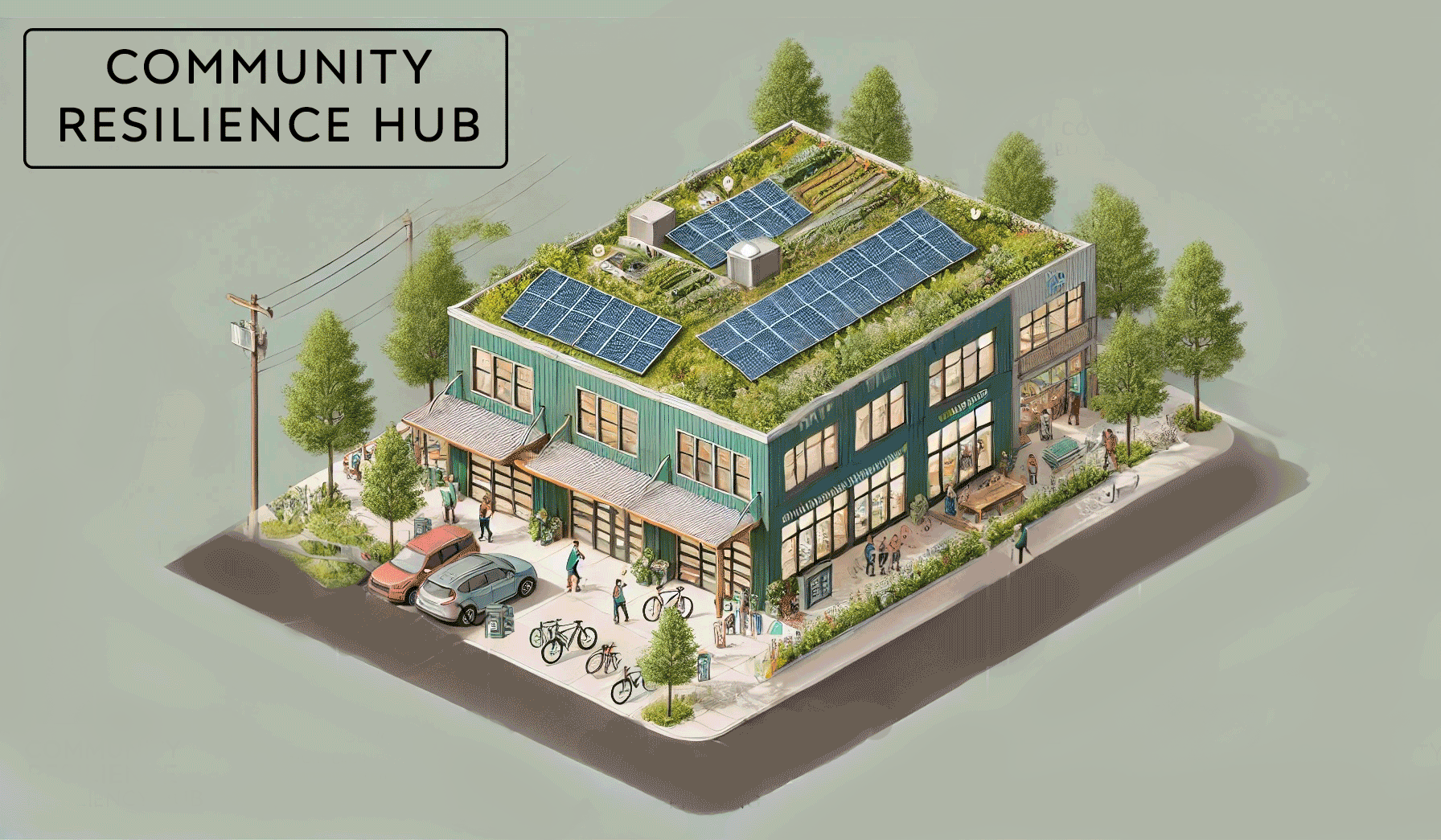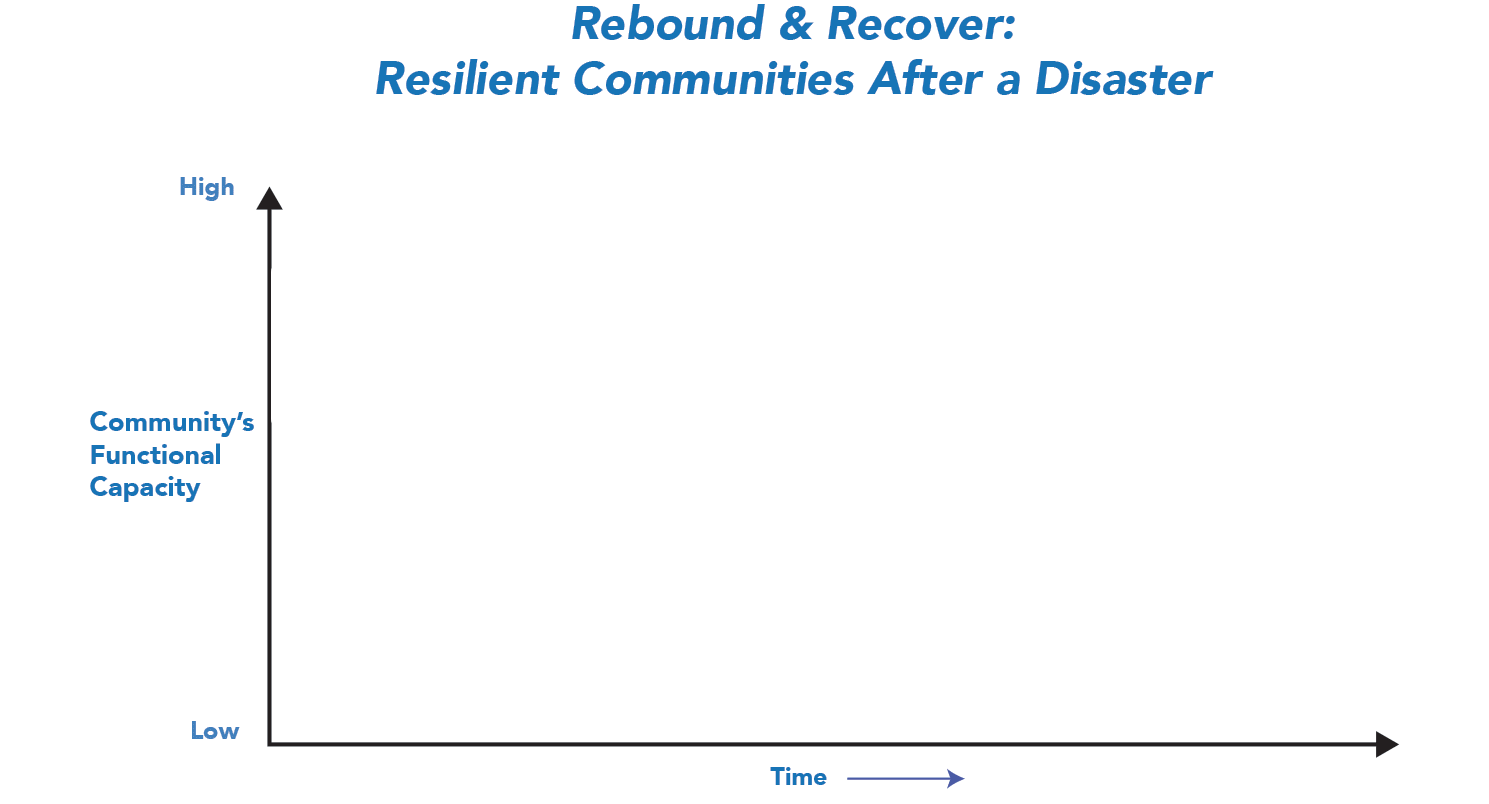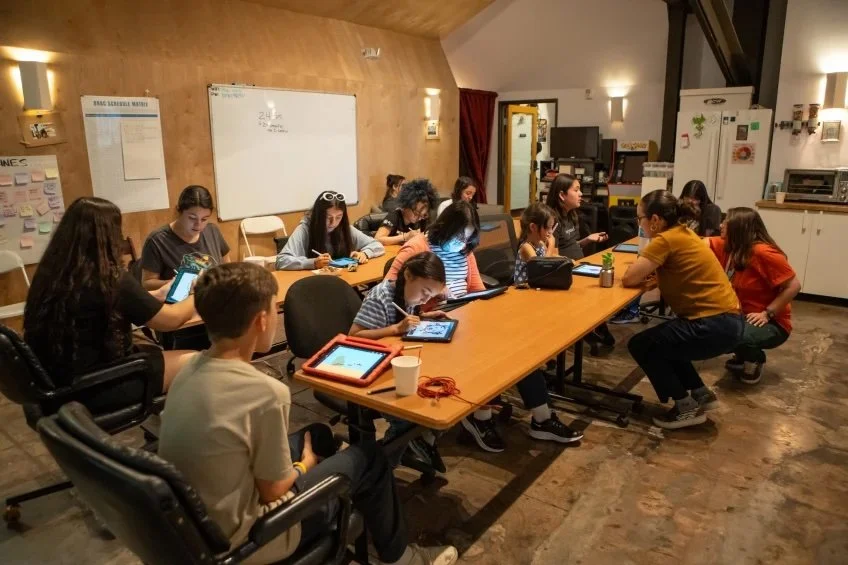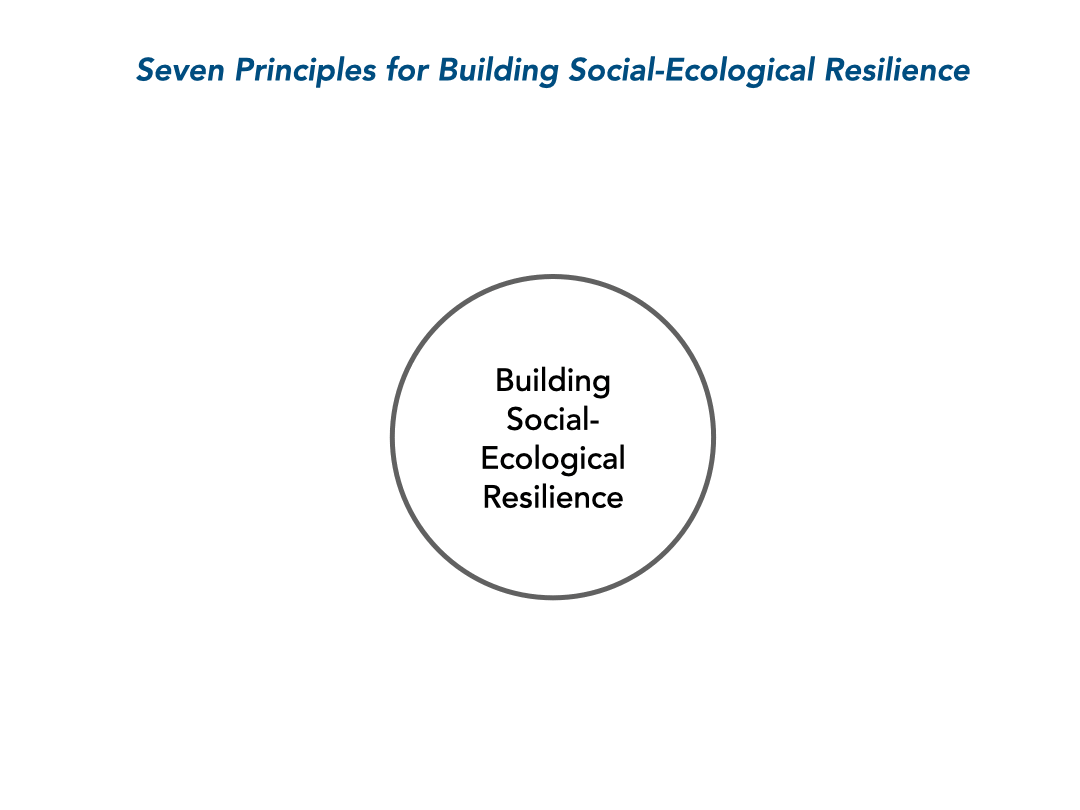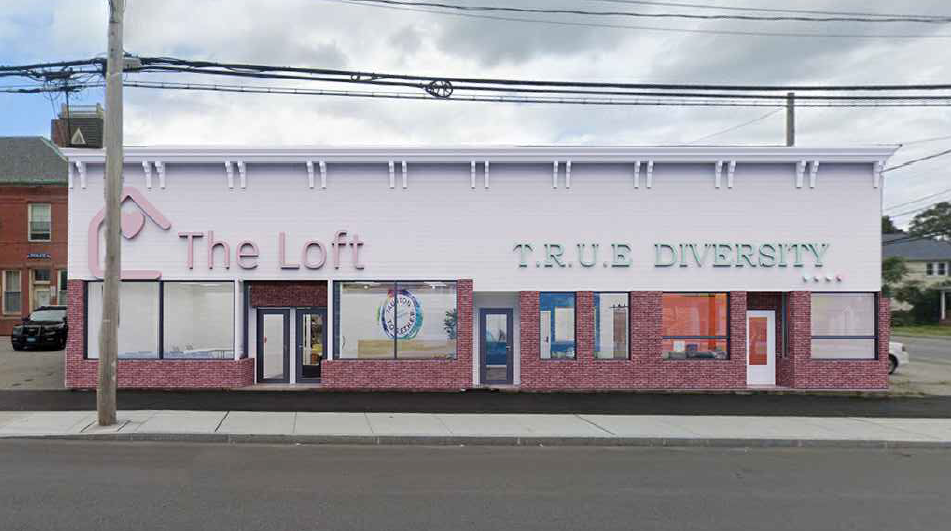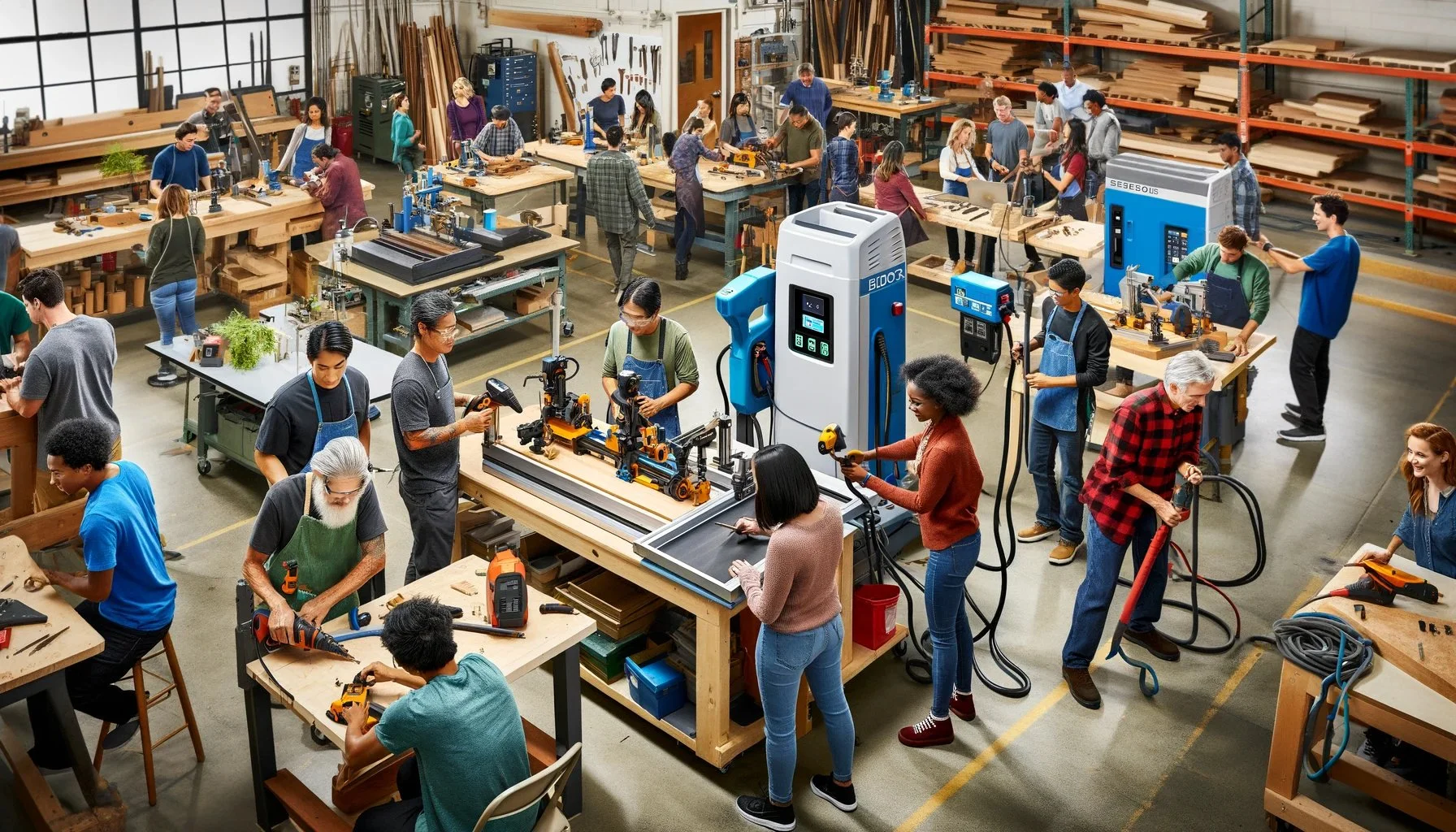What is a Community Resilience Hub?
Resilience Hubs can come in many shapes and sizes.
The Future of Small Cities Institute has been working with local partner organizations to refine and expand the concept of a Community Resilience Hub for local municipalities throughout the Northeast. The Resilience Hub model comes from the Urban Sustainability Directors Network, which defines a Resilience Hub as “community-serving facilities augmented to support residents, coordinate communication, distribute resources, and reduce carbon pollution while enhancing quality of life.”
Adapted from Community & Regional Resilience Institute
Resilience can be defined as “the ability to anticipate risk, limit impact, and bounce back rapidly in the face of turbulent change.” Resilient communities with strong networks, resources, and plans in place can rebound and recover much more quickly than less resilient communities. This can be a vicious cycle—marginalized communities that have faced longterm disinvestment are often on the frontlines of climate change and lack the critical resources and capacities necessary to weather these disasters.
The Community Resilience Hub model is one solution to offering a neighborhood or region an anchor space of communal sustainability. The Hub functions as a catalytic nexus that supports the process of recovery and rebound, while also helping communities to grow and thrive in a changing world.
A community workshop at Cambridge Community Center (L) and a digital drawing class at Boyle Arts Conservatory (R).
There are several powerful examples of Resilience Hubs in development, including the Cambridge Community Center in Cambridge, MA and the Boyle Heights Arts Conservatory in Los Angeles, CA, both of which have cultivated their status as Hubs due to their natural rootedness in the neighborhood and the community.
“We were a resilience hub before we were designated a resilience hub because we're grassroots, community engagement,” said Stephanie Monte, Programs Manager for the Boyle Heights Arts Conservatory.
Retrofitting unused or dormant urban spaces into active Community Resilience Hubs.
Resilience Hubs come in all shapes in sizes—they can be existing community centers, churches, schools, or they can be once-dormant buildings that have been retrofitted and reactivated. Some recent Resilience Hub models have emphasized the clean tech aspect of climate resilience, with features like EV charging, backup battery power, microgrids, and solar power. These, along with emergency supplies, can be critical resources for communities, particularly in the event of a grid power failure or extreme weather. But as both Cambridge and Boyle Heights demonstrates, true resiliency is rooted in fostering a network of trust within the community. True resilience beyond disaster scenarios is based in social resilience.
There has been a lot of deep, interdisciplinary research on cultivating social resilience, including the “Seven Principles for building resilience” from the Stockholm Resilience Center, which places the concept of social resilience in an ecological framework.
The Future of Small Cities is working with partners on a toolkit to help municipalities and local organization strengthen their culture of social resilience by funding and establishing their own Community Resilience Hubs, balancing the need for clean technology with vibrant community and social spaces. How do you design a Hub so that it becomes an ecosystem for these resiliency principles? By incorporating community spaces and Urban Rooms as the centerpiece of a Hub, and by making community programing, events, and education the main emphasis of the work, a Community Resilience Hub can evolve into a place not just to survive and rebound from a potential disaster but to flourish in the present and the future.
Community Resilience Hub designs with spaces for the community to explore and learn about different forms of resilience.
A Community Resilience Hub can offer a range of dynamic programing in response to community needs. Yet not all of these activities have to be about “resilience” or “sustainability”—rather, the space should be in dialogue with neighborhood conversations. By offering a space of gathering, celebration, and education, the Community Resilience Hub is inherently strengthening a network of social resilience which will be critical when future challenges or changes arise.









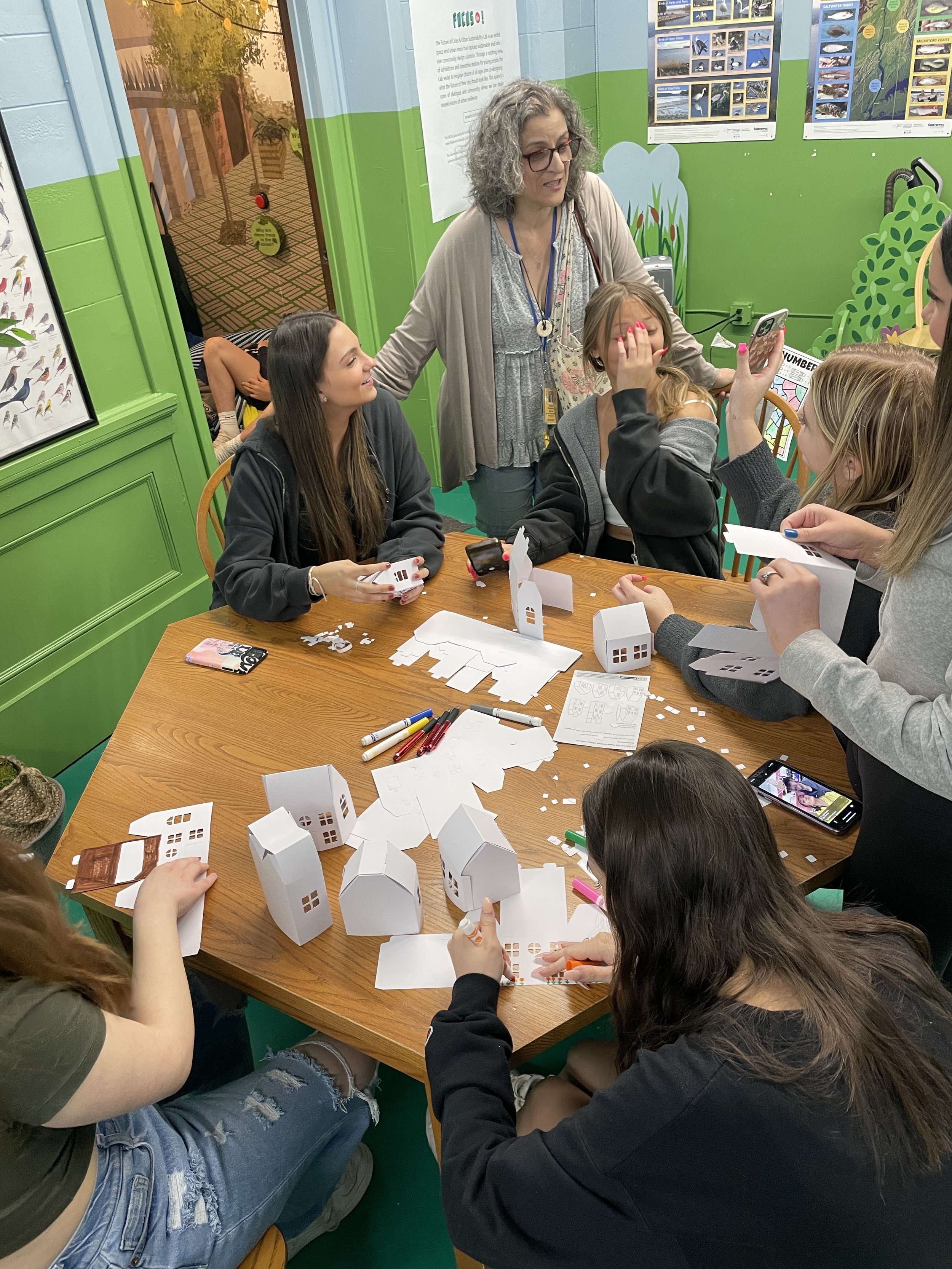



The Loft will be a Community Resilience Hub run by T.R.U.E. Diversity in Taunton MA
One exciting example of a Community Resilience Hub being developed now is The Loft in a formerly vacant 6000 sq ft building in Taunton, MA. Local non-profit T.R.U.E. Diversity own and operate the The Loft, which will include a community & event space, afterschool programing, and a flagship Clean Energy Workforce Energy Training Center. T.R.U.E. is teaming up with a number of partners on the project, including Mass Development’s TDI, Beacon Climate, and Sovations.
The Loft will be the headquarters for T.R.U.E. Diversity's afterschool programs.
The Loft will also house a Clean Energy Workforce Training Center.
Through the Clean Energy Workforce Training Center, T.R.U.E. will create employment opportunities for underserved community members, building a strong local economy and growing generational wealth in the neighborhood and beyond. The redevelopment and rehabilitation of this building will have a profound effect on the neighborhood and offer the community an anchor space and dynamic regional destination for Taunton and Southeastern Massachusetts.
For more information on developing a Climate Resilience Hub centered around community needs, The National Association of Climate Resilience Planners offers a great framework for Community-Driven Climate Resilience Planning and Lancaster University provides the terrific Neighborhood Resilience Programme.

